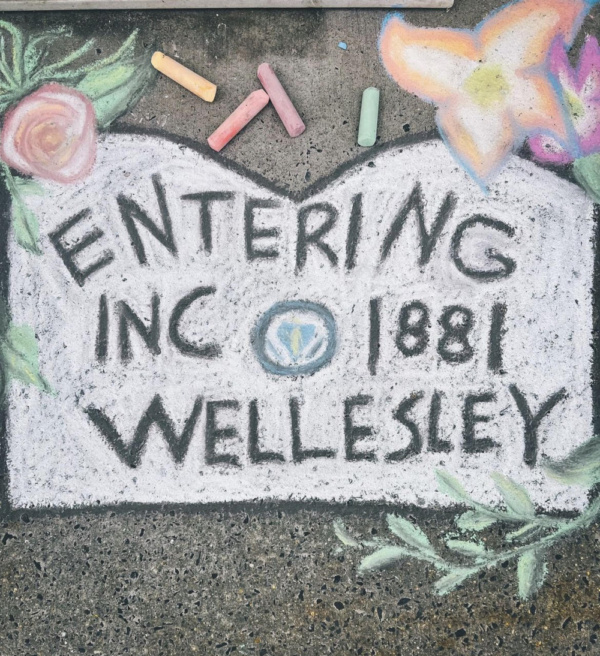The drama series “Ginny and Georgia” took Netflix by storm when season one released on the streaming platform Netflix in the summer of 2021. Now, nearly two years later, season two has been released, immediately propelling the series to number one on Netflix’s English series charts.
Speculation suggests the show is based on the town of Wellesley: the name of the town is Wellsbury, the creator of the show grew up in Newton, and the show is set in a Massachusetts suburb. However, many are skeptical of this theory, including the Swellesley Report’s Bob Brown. Whether or not the show is actually inspired by Wellesley or simply the idea of a Massachusetts town, the show’s portrayal of the high school experience and questionable handling of heavy issues open up the doors for a deeper conversation.
The show follows a mother and her two children who move into a new town located in Massachusetts. Although the town and people may seem picturesque, everybody is struggling below the surface. The series discusses mental health and the various challenges of every character, whether a teenager or an adult.
The series has been heavily criticized for its portrayal of mental health, especially in the most recent season. Critics call the show a bit lazy in its portrayal, saying the show prioritizes entertainment over responsibility. Supporters of the show call the storytelling authentic and below the surface and believe that this aspect of the series is a strength rather than a shortcoming.
At Wellesley High School, students don’t have many positives to share about the show.
“I think that it’s a bad show,” said one anonymous student.
The school psychologist at the high school, Mr. Zachary Biedermann, who himself has watched the series, applauds the writers for breaking down barriers on mental health discussion but does note some improvements that could be made.
“I do think the show did a good job of showing the benefits of counseling, as Ginny was using a lot of the different strategies that the therapist was talking about,” said Biedermann. “One thing that I didn’t appreciate about the show is that in one of the scenes, [Ginny’s mom] thought she was entitled to know all of the information going on in the counseling setting, and she was almost mad that she wasn’t getting more information. And I think one thing that’s really important in therapy sessions and mental health in general is the confidentiality between a therapist or a counselor and their student or client.”
Wellesley and Wellsbury are similar on the surface: both towns are predominantly white suburbs located in Massachusetts and are more close knit than most. Yet, while there are similarities between the two towns on the surface, the more impactful commonalities are between the show and high schoolers in real life, is the discussion around mental health struggles.
“You might be sitting next to someone in class who has something going on outside of school that teachers have no idea about. I think the show does a good job of bringing those dynamics outside of the school, into the building,” said Biedermann.
But is discussion enough? What responsibilities do series creators have when they introduce these heavy topics?
“For the positives, I think it normalizes talking about mental health. I think a lot of times there’s a stigma around either struggling with one’s mental health or being in therapy and receiving counseling support,” said Biedermann.
The show offers viewers a list of mental health resources, which Biedermann regards as a positive. However, he suggests that the show should implement a trigger or content warning for viewers before episodes, especially since many scenes discuss self-harm, domestic violence, and more.
For students who watch the show, Biedermann worries they may bring what they see on screen into their real lives.
“People may think that they can handle it on their own or they might not turn to an expert because they watched it on a TV show. So they may think that they can handle it because ‘Oh, I would have handled that like in the TV show’… It may show a side that’s not necessarily true or realistic. Students could buy into the show and the idea that one size fits all. There are many layers to mental health,” said Biedermann.
While “Ginny and Georgia” does open up a new or at least less seen level of veracity to the film and media industry’s portrayal of various mental health struggles, something that shouldn’t be censored, the lack of content warnings before particularly triggering scenes can be extremely harmful for those who unknowingly watch.

